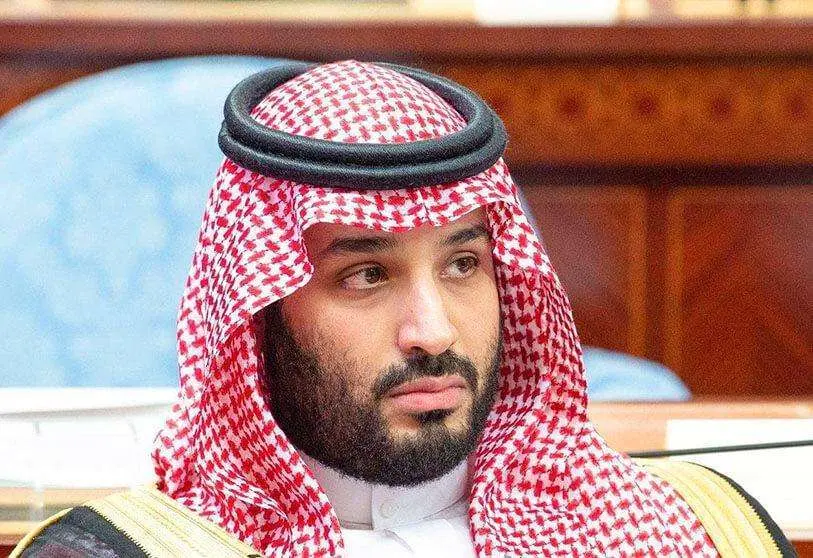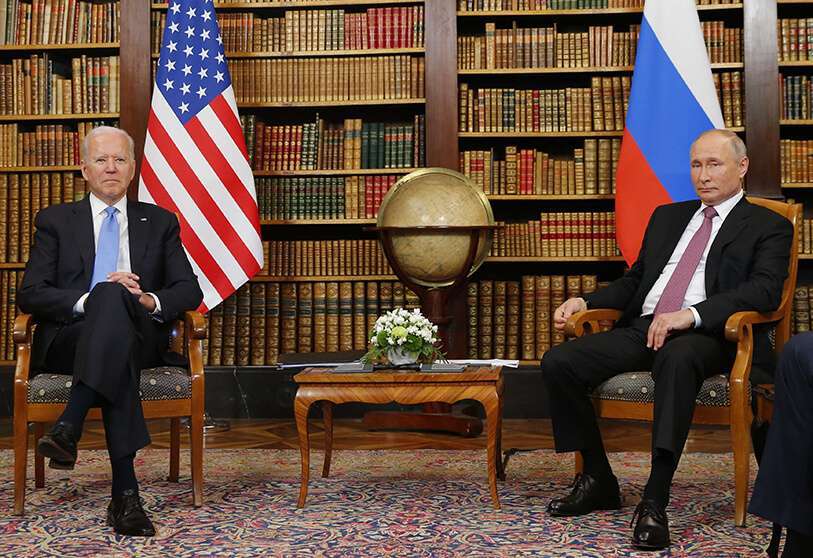Time for Gulf stakeholders to prevent Russian weapons from entering Iran

Iranian President Ebrahim Raisi arrived in Russia on Wednesday on an official visit and met with Russian President Vladimir Putin to discuss the situation in the region and relations between the two countries.
In Raisi's words, this meeting between the two leaders "could be a milestone" and conclusive for the "strengthening" of bilateral relations with Moscow, stressing also the importance of the country for the Middle East region.
Raisi was received at the airport by Nikolai Shulginov, Russian Energy Minister, and Igor Morgulov, Russian Deputy Foreign Minister, Iran's Tasnim news agency reported.

"Cooperation and dialogue between two important countries with power and influence could contribute to the promotion of regional security, as well as economic and trade ties," the Iranian leader communicated, while assuring that "interaction and cooperation between the two countries can affect the regional and international situation."
Likewise, Raisi expressed that "the current level of commercial and economic cooperation is not satisfactory for any of the two States, so it is necessary to raise it to a much higher level", also assuring that there are different opportunities for cooperation between both countries, both at political, economic and energy levels.
The visit has set alarm bells ringing in the Gulf countries, whose activists and other stakeholders are demanding greater support and stronger action to prevent Russian arms from entering Iran, after new reports surfaced that Iran is still trying to sign a valuable arms deal with Moscow, one of the main reasons for the visit.

Observers of affairs concerning the Gulf consider it necessary for the states of the region to be vigilant and prepared to thwart any attempt by Russia to deliver special weapons to Iran, noting that the Gulf countries have in their power more than influential reasons to achieve this, which are an investment card and various economic agreements with Moscow.
These economic agreements not only present great economic opportunities for Russia, but also represent a more reliable and committed position than that of Iran, which in addition to being mired in a crisis, has a history of canceling most of the contracts signed with Russian companies, awarded to Western companies, excusing itself on the need to restore the confidence of Western countries. .
These observers believe that these agreements will cause Russia to back down, just as the United States did in its position on the Iranian issue, giving experts hope that Russia will change its approach in order to build new strategic relations with the country in its quest to compete with the United States.
However, new Russian reports unveiled Iran's aim to get more upgraded fighters, including Sukhoi Su-35s, air defense systems, radar stations, and new electronic means of warfare, which could come about if both countries support a military deal during Ebrahim Raisi's visit.

Likewise, Iran is also preparing to establish possible long-term agreements with China, through a strategic cooperation treaty backed by large Chinese investments in Iran, in exchange for stable and lasting supplies of Iranian oil at lower costs, despite possible U.S. sanctions.
As for the accusations of its desire to obtain more modern weapons from Russia, Iran excuses itself by claiming that they are urgently needed to cope with possible Israeli attacks targeting vulnerable areas in the country.
However, the same experts assure that these weapons will be directed to preserve the security of the countries in the region, either through the Iranian threat, or through the distribution of such weapons to allied militias such as Iraq, Lebanon and Yemen.
Observers point out that the pretext of attacks from Israel may not be true, since Russia, due to previous Russian-Israeli agreements, could not sell under any circumstances any weapons that could be used to threaten Israel's security, raising new suspicions that the point in the crosshairs could be Gulf national security.
Because of this, observers claim that, if they do not use their pressure cards, the Gulf countries could find themselves in the crosshairs of a potential threat to their national security, with the Houthi attacks that targeted oil-producing areas in Saudi Arabia and the United Arab Emirates likely to be repeated and even more damaging, especially with the recent passivity of major powers such as the United States, and the weak influence of the UN Security Council.

As for Ebrahim Raisi's meeting with his Russian counterpart, the Iranian president reported that his country had handed Russia a 20-year strategic cooperation project, also pointing to the possibility of the two countries cooperating to confront the unilateral decisions of the United States at the international level.
"We in the Islamic Republic of Iran have no restrictions on developing and expanding relations with friendly Russia. These relations will not be short-term and tactical, but permanent and strategic," the Iranian president said of the two countries' relations.
Moreover, Raisi assured that such cooperation in the region "will ensure security in the region and put an end to unilateralism".

For his part, Vladimir Putin expressed that such cooperation has been an important step that helped Syria to cope with terrorist threats in the territory, praising also the relations between Iran and the Eurasian Economic Union.
In addition, the Russian president stressed the importance of knowing his Iranian counterpart's opinion on "the Joint Comprehensive Plan of Action".








